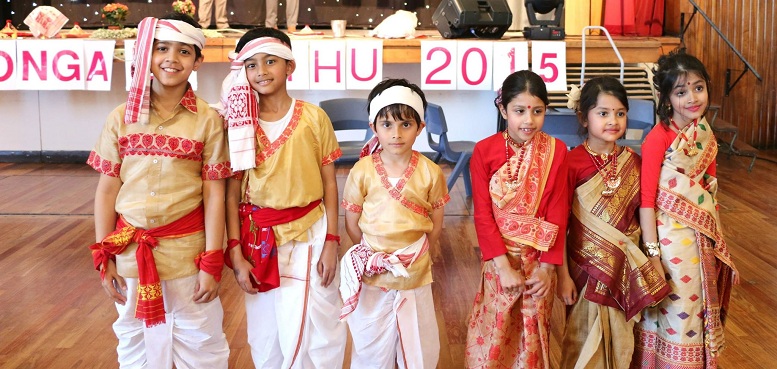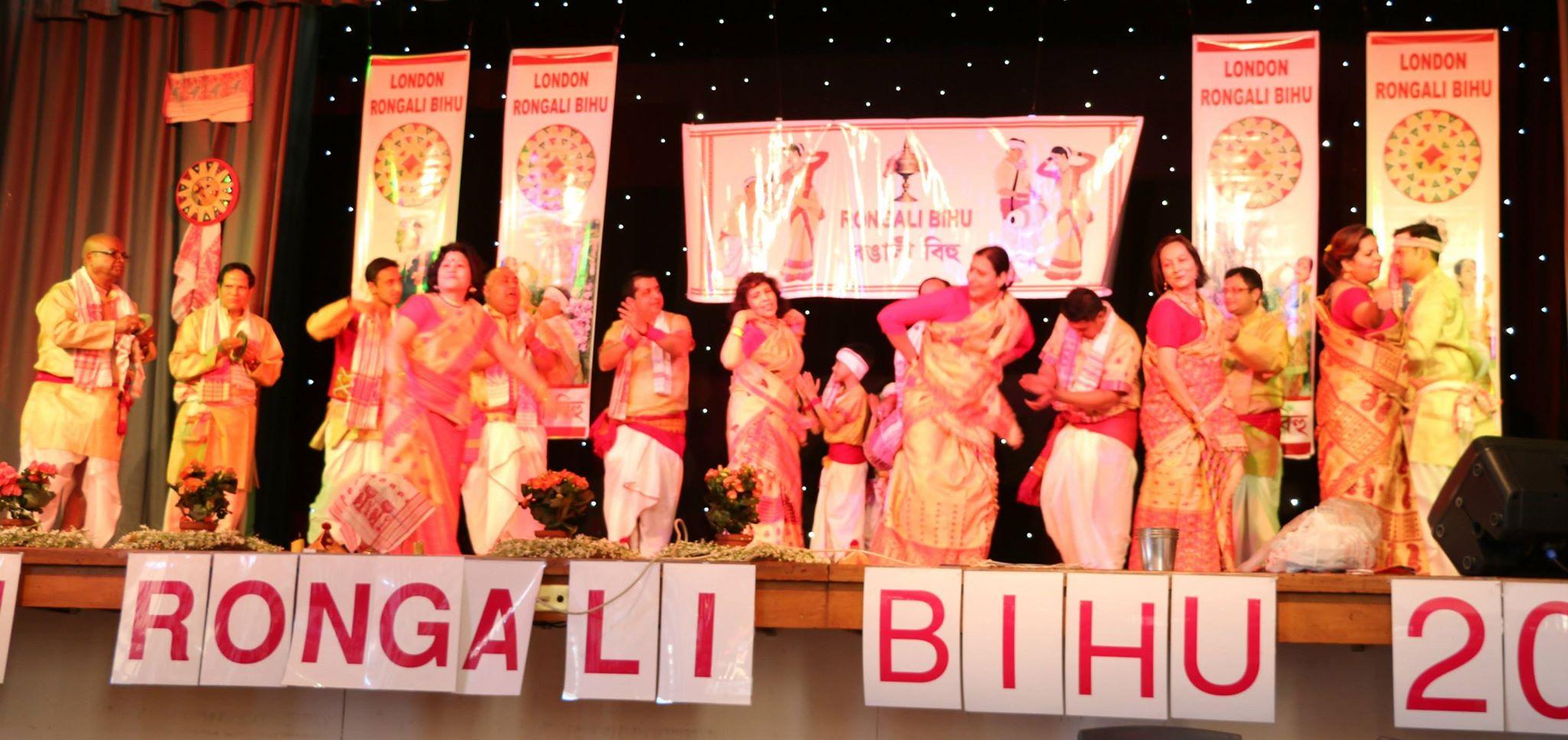I feel honoured and privileged to write about the celebration of Rongali Bihu in London, which is the oldest venue for this beautiful Spring Festival outside of India.
This year London Bihu Committee decided to host on Saturday 18th April, which happily fell near the traditional Bohag Bihu date of 15th April. It was a stunningly beautiful sunny Saturday morning although the cold breeze from the North Pole produced a nip in the air. Not taking into account last minute arrival at the gates, the number of Bihutoli attendees was close to 252 if not over that figure. Over the last 28 years of Bihu celebrations in London, this is one of the rare Bihu celebrations where so many people congregated under one roof. It was not so much the very young, or the young, or even the seniors who congregated in the Bihutoli who held a special feature, but as far as I can remember it was one of the special occasions that children who were born and brought up in United Kingdom and appeared and performed on the stage with great confidence, that highlighted the Bihu theme of roots and identity.
As the guests arrived they were welcomed at the gates by members of London Bihu Committee, and then treated to home-made Assamese delicacies including the inimitable Pitha, laroo, the chira-doi.
 Bihu Committee President’s Welcome speech
Bihu Committee President’s Welcome speech
Dr. Khogeswar Lahon, President of the Committee spoke both in Assamese and English whilst welcoming the guests. Vice-President Professor Jayanta Barua, delivered an erudite dissertation about the global aspect of this Spring Festival.
Sports for adults and juniors
The hall size was sufficient enough for musical chairs to be hosted. The age groups of the participants involved ranging from septuagenarians to toddlers was hilarious and had the whole crowd entertained.
Cultural programme
The highlight of the cultural aspect was the presence and performance of the guest artist from Assam, Mr Jitul Sonwal, who is known as the Father of Modern Assamese songs. He delighted the audience with a medley of songs containing both traditional Bihu and modern. He was ably assisted by a hugely talented group from Birmingham. There were four singers who represented the London Bihu Committee. In my view, the Husori group representing men, women and the children, who all wore colourful traditional Assamese costumes and sang and danced in perfect unison and timing, stole the show in the evening. Jhumur dance, which is the traditional dance of tea plantation workers was my personal favourite and was beautifully represented by the ladies. It vied for position and popularity with Nazitora’s group, which was a dance executed by young boys and girls. I must say that it was beautifully choreographed and matched by the hard work and intense practice of the performers. In addition, there were individual song performances by invited guests, living outside London, and they were lucky enough to be guided and supported by a beautiful band.
Vote of thanks
The vote of thanks by General Secretary Dr. Urbashi Barua, was delivered with precise care and attention and dedicated to all those who had made the Bihu a great success. Dr Barua paid special compliments to Zarir Hussain, senior Editor of News Live (TV channel), and Albert Bando the cameraman, who had taken the effort to come all the way from Guwhati to record London Bihu 2015. Naturally, the main recipients of the thanks are the guests, who are the jewel in the crown and have consistently attended and supported the London Bihu over the years.
General Bihu dance: This is essential to every Assamese occasion and even more so with Rongali Bihu. Guests danced and sang to the tunes of Mr Sonwal’s live music that even I, with an artificial knee, could not resist the temptation to join in.
The Bihu feast
The guests were quite famished and thirsty after a long day of meeting friends and entertainment. Shirin, the caterer of Assamese and Indian cuisine, customarily rose to the occasion and supplied food of superb quality and sufficient quantity to feed the large audience. After a sumptuous meal, people were still hungry. However, this was not for food but more for dance and music, which they did to their hearts’ content. As the evening drew to a close, it was time to say a good bye to those friends and families, who had come vast distances from all directions of the United Kingdom
Dr. N. Sikdar



- 12638 reads









Add new comment